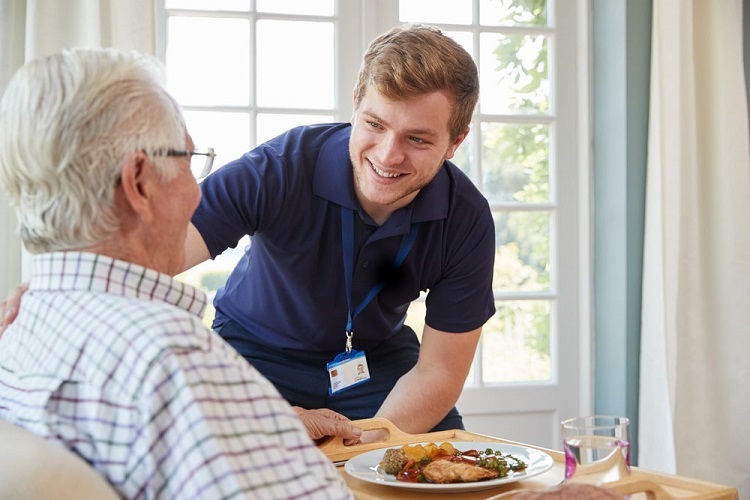In the U.S., one of the most rapidly growing segments of the population is that of people aged 65 years and older. This growing population of seniors is challenging, not only for national and local governments, healthcare sectors, and policymakers, but involves nearly everyone in the community who has, or will eventually have, an aging family or loved one in their care, and will likewise be dealing with their own aging in due time.
Staying healthy as you age takes significantly more than what social healthcare, medicine, and advances in medical intervention can provide. Immediate family and caregivers are instrumental in providing genuine quality of life to these members of the senior sector, allowing them to age as independently and comfortably as everyone can manage.
Table of Contents
Manage Their Care
At least one member of the family needs to take a lead role in coordinating functions among all those providing care services for your elderly, including both the professional and casual. This means coordinating with everyone from your loved one’s primary healthcare physician to the individual who comes in periodically to clean the household.
Care Regimens Need to be Person-Centered
It is vital to encourage your elderly to make decisions for themselves, especially about the kind of care they need, the frequency of care services, and where or when they want to receive it. This kind of involvement in their own welfare empowers them and contributes to better health outcomes.
Mindful Communication
It is typical for many people to attempt to address the challenges of elderly care themselves while overlooking those who are most involved: the elders. In many cases, the family decides to take a grandparent into their home after, say a heart attack, without consulting first if he or she prefers retirement home care or arrange for assisted living. Do not fear having difficult conversations about living wills or end-of-life care.
Social Inclusion
Actively include your elderly in the family. Create opportunities that encourage them to involve themselves in both family and community matters. The risks for social isolation increase as an individual ages because, as he or she grows old, he or she is faced with more aggravating factors such as loss, illness, or living alone.
Use Technology to Your Advantage
Advances in technology have allowed for improvements in several facets of elderly care. Keep yourself current with innovations in technology that can assist everyone in looking after the elderly in the home. You may utilize remote monitoring systems that you can download as apps into your phone to be able to monitor their safety even while you’re at work.
Maximize the use of video conferencing platforms in lieu of in-person doctor’s appointments, especially in these sensitive times. Also, there are several online ordering applications you may use to have food, medication, and other needs delivered.
Care for the Caregivers
Recognize and acknowledge the challenges that come with the care of the elderly. Practice empathy for all those who provide care for your elderly family member or loved one, be it the at-home service providers or those that work in the assisted living facility you elected. Offer time off, recreation, or any token of appreciation.
Provide a Safe Environment
Studies have found that the majority of senior-aged people prefer to live independently rather than with their children’s families. If your elderly is not among this majority, do discuss potential difficulties that may arise before deciding to take in an elderly parent or loved one.
Whatever you decide, it is imperative that you ensure that you provide an encouraging environment where they can safely exercise their autonomy and independence.
Do Not Overlook Their Mental Health
Generally speaking, many older adults in the U.S. are of good mental health currently. It is estimated, however, that the number of elder people with mental health issues could balloon into as high as 15 million by the year 2030. Anxiety and depression are the mental health disorders commonly associated with declined function and poor physical health.
Such mental health issues are more likely to arise later in life as aged adults face loss, illness, dementia, or disability. Managing conflict within the family likewise becomes more difficult and increases the risk for mental health disorders.
As someone with an elderly person in their care, you should know that managing such difficulties and the treatment of previously undiagnosed mental health disorders can mitigate emotional suffering or disability and improvements in physical health and quality of life.
The common source of conflicts within multi-generational households is the seeming role reversal: the children might feel that they have to assume the role of “parents” to their actual parents or elderly loved ones. While it’s true that you as the adult child or caregiver is now their primary source of financial, emotional, or physical support, bear in mind that this is not equivalent to “raising” them. \
Practice empathy and continue to regard your elderly as individuals who may be coping with declining health, loss, and insecurity. As their primary giver of physical and financial support, you, too, are the leading source of emotional care.
Meta title: Providing Care for Our Elder Family Members
meta desc: Caring for our loved ones when they grow old is a big responsibility. Read on and discover eight reminders on how to provide the best possible care to the elder members of our family.




